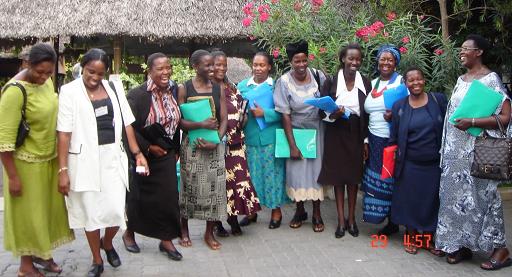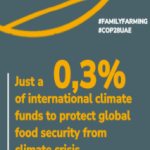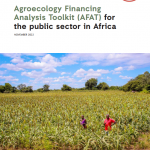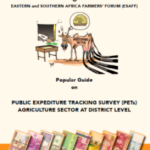ESAFF vows youthful, gender balanced leadership key to future

01/06/2013
To strengthen ESAFF for the future recruitment of more youthful and gender balanced leadership in the next Triennial General Summit (TGS) will be a major focus.
As the body prepares the Summit, members have vowed to embrace youthful and gender balanced leadership. Speaking at the end of the Annual general meeting (AGM) week in Dar es Salaam recently, ESAFF leaders vowed to mobilize the youth and women to become join ESAFF at the grassroots.
A quick survey indicates that more than 75% of ESAFF farmer leaders are above the youth age line which is alarming in terms of embracing changes in agriculture and leadership of ESAFF. “Though we have started using whatsup, viber and facebook in our communication but we think that having a youth composition will move ESAFF a notch higher and in a faster manner,” according to Mrs. Beatrice Twayaga who is the Vice chairperson of ESAFF Uganda. She says women forms the majority small scale farmers in the region hence automatically should form a good proportional in ESAFF leadership.
Speaking of the youth, the ESAFF Uganda Chairman, Hakim Baliraine, says ESAFF Uganda has a youth guideline and have a position of a desk officer for youth which has brought a new dynamism. “We have started slowly to mobilize the youth and we see it as an added advantage. We argue other ESAFF national members to embrace youth in our activities to ensure sustainability of our organization.
Zimbabwe has a composition of more women and youth in its leadership structures from farmer groups at the grassroots to districts forums and national structure, compared to other ESAFF members.
ESAFF has commissioned a study on youth that will provide a roadmap on mainstreaming youth components in its activities and leadership.
Background information
Youth, Gender and HIV/AIDS are critical issues at the centre of ESAFF’s concerns. In 2013 three sessions were organised for members during the AGM week 2013 to deliberate on the three key issues; Youth, Gender and HIV/AIDS.
• Youth in ESAFF: Various studies have indicated that ESAFF must introduce and mainstream youth agenda to ensure sustainability and ideology entrenchment through succession. It was also been noted that new youthful leaders can bring new vigour, and enhance technology utilisation within ESAFF network. It was also been noted that in some countries leadership composition comprises not youths at all. For example n Kenya, Uganda and RSA no youth were in the leadership position (in the national Board). This made the members to deliberate put deliberate measures in the year 2013/14 to up inclusion of youths. It was also observed that a youth congress be organised prior to the Triennial General Summit to deliberate on how to enhance youth participation in ESAFF activities as well as agriculture policy processes. A study report on youth within ESAFF is being finalised.
|
Why mainstreaming youth agenda within ESAFF
• Strengthening youths, capacities and participation in ESAFF activities
• Strengthening the youth leadership position and decision making
• Forming youth caucus in the communities, national and regional AGMs
• Policy and Constitution changes to accommodate youth in the secretariat, leadership and activities (training/workshop at regional level
|
• Gender: It was noted during the gender monitoring session that few national members had gender policies (Malawi, Tanzania and Uganda) while the rest had no policies in place. However, it was decided that ESAFF and its members work to ensure gender balanced leadership at all levels. Members wanted assurance within the constitution that both men and women can be guaranteed to have gender balanced leadership positions. It was decided that during the run off to the Triennial General Summit (TGS) in 2014, member countries and ESAFF should organise constitutional assembly to assess gender and youth awareness. A tool to enhance gender sensitive ESAFF in being finalised.
|
What was expected after gender mainstreaming
• Strengthening women’s, youths, people with disabilities capacities and participation in ESAFF activities
• Strengthening the Women’s leadership position and decision making
• Forming women’s caucus in the communities, national and regional AGMs
• Reflecting upon equitable relations between women and men, and including these in the AGMs agenda
• Constitution changes to accommodate gender balanced leadership at regional level
|






















